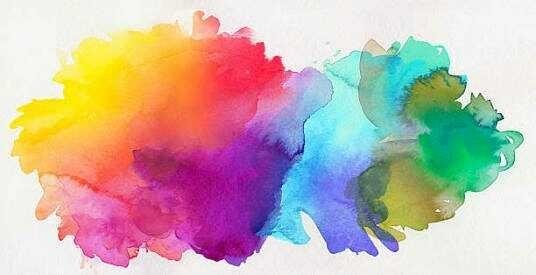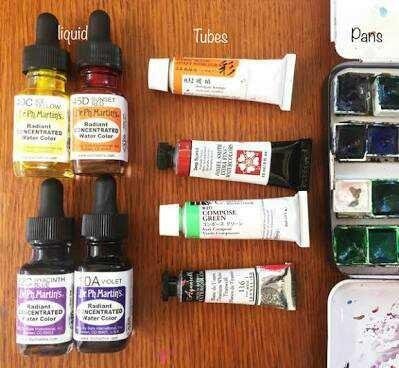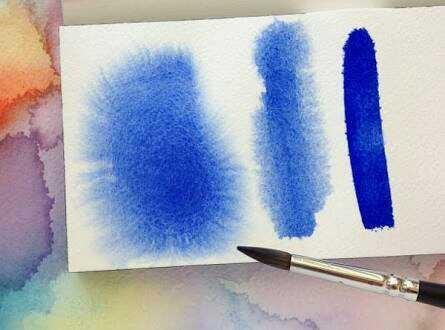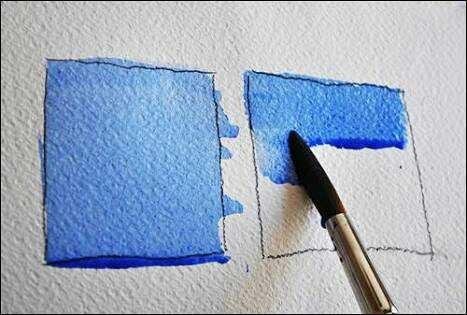What is watercolour?
Hi there, welcome to another art supply guide, this time I would be discussing on watercolour as a medium, tools and materials needed for watercolour paintings basic techniques used.

source
Watercolor refers to a painting method where the paint pigment is suspended in a waterbased solution. Watercolour as a medium has been used now for a long period of time. Originating from China it has well been used in a monochromatic manner. The name watercolour both refers to the paintings produced and the paints used. Most often, students when introduced to painting start with this medium. Why is that you might ask? This is because of most medium of painting it is relatively cheap and easier to control for beginners. It readily gives a good background into the world of painting. Unlike oil, it dries quickly and can still be reused, it shines in the area of blending and affordability.

source
Watercolor comes in various forms. There are the tube watercolour and the pan watercolour, they are the same be can used in various ways. It is quite easier to mix colours with the tube watercolour than it it is with the pan but in so doing tube colours are easily used up in comparison to pans. Even at this the choice is up to you but I prefer pans for they are easier to carry about.
Watercolor to be used has various tools and supplies unique to the media. Paintings in watercolour is best experienced with a watercolour paper. Here the pigment flows as directed and dries as wet. It is also built to withstand water constantly applied to it. Also a good set of rounded brushes would be very handy. Other tools that would be needed when painting include:
- rag for all your drying needs
- two bottles of water for rinsing brushes
- papers towels for picking up excess colour and water
- a few other stuff I'm forgetting :)
Techniques
Watercolor like any other media has its techniques that are used when painting. These techniques are the bedrock of any watercolour painting. They include :
Wet on wet technique

source
This involves dousing the dry paper with little drops of water to make it wet. Then applying on the wet area of the paper wet paint, hence the name wet on wet. This technique creates a watered-down version of the applied colour, a light version good for layering.
wet on dry technique

source
On a dry portion of paper, wet paint is applied directly without any need for wetting the paper. This gives a sharper undiluted version of the colour great for outline and detailing.
Thanks for reading, stay blessed!